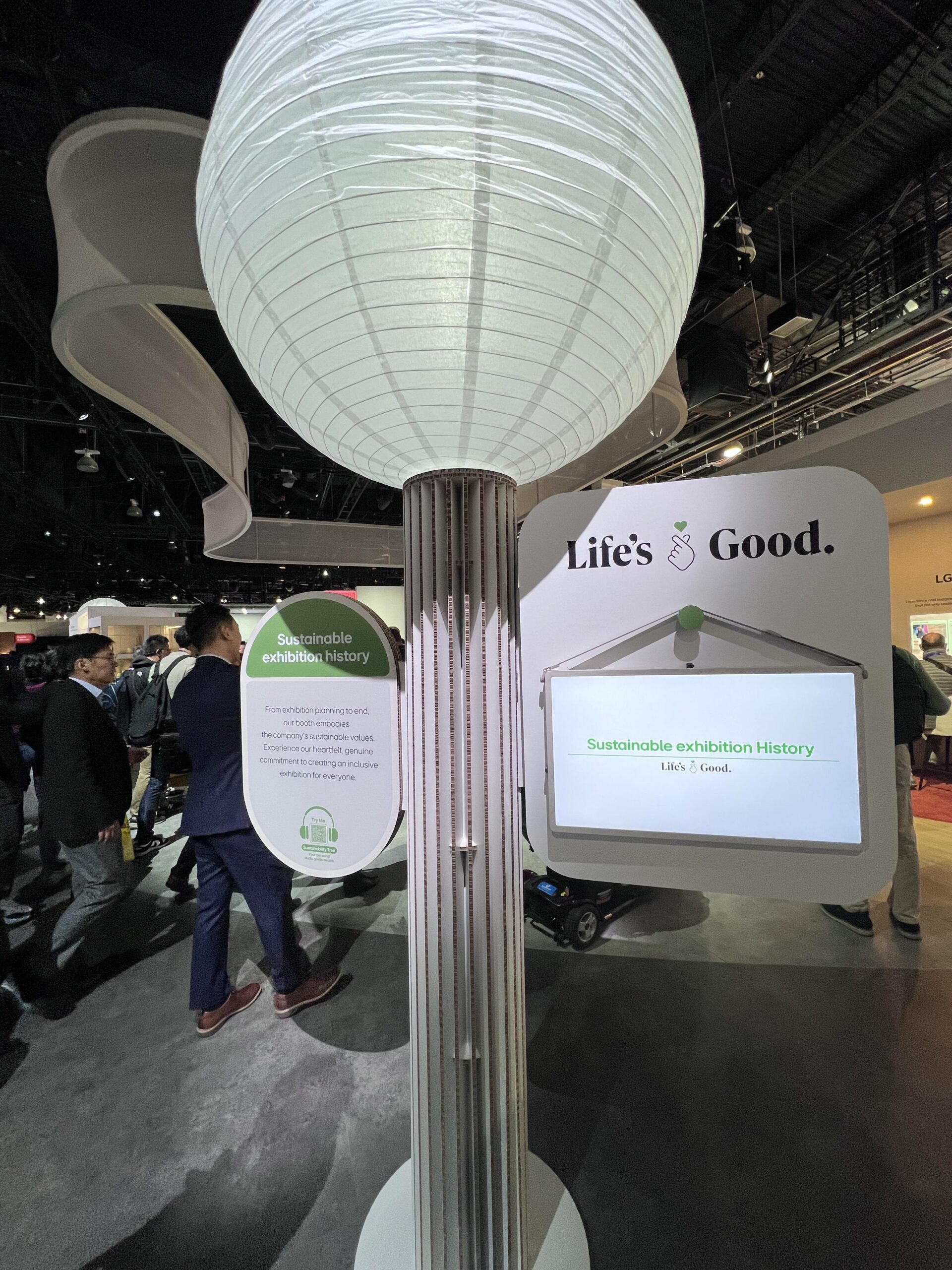As the world’s premier tech showcase, CES brings audiences face-to-face with transformative innovations that shape our future. From the Delta Air Lines keynote at the Vegas Sphere to Sony’s Immersive Entertainment Concept, there was no shortage of valuable takeaways during an action-packed week.
The Future Takes Shape: 3 Key Developments from CES 2025
By Vincent Higgins
Immersive Reality Enhancing the Human Experience
Advancements in XR (Extended Reality) are set to revolutionize communication and entertainment, growing effervescently to offer immersive experiences in event sectors. New developments in display technologies are rapidly transforming how we consume media, offering more engaging and lifelike experiences.
- Sony: Sony made waves this year with their Location-Based Entertainment booth, immersing attendees in scenes from The Last of Us. Using cutting-edge technologies like Crystal LEDs, 360 Reality Audio, and even scent-based atmospherics, the booth showcased how innovative technology can engage all five senses to create an immersive experience within XR.
- AARP: Utilized Proto “holograms” to guide visitors through their interactive booth. Allowing attendees to follow the journey of three people as they look for technological solutions to everyday problems.
- Delta: I had the privilege of attending Delta Air Lines groundbreaking keynote at the Las Vegas Sphere. Its 16K resolution wraparound LED screen and state-of-the-art acoustics created an immersive environment that brought Delta’s vision to life in unprecedented ways. The overarching theme was clear: Delta is not leveraging technology for technology’s sake but is dedicated to using it to enhance human experience through meaningful innovations. This wasn’t just a keynote it was an immersive entertainment experience.
AI Integration
Artificial Intelligence was omnipresent with companies embedding AI to enhance user experiences, from personalized content recommendations to intelligent home automation. Artificial Intelligence is rapidly advancing in how it can help tailor the attendees’ experience.
- Samsung: Unveiled their “AI for All” vision, emphasizing AI integration into everyday experiences. Their booth featured interactive demos showcasing AI-driven home appliances that adapt to individual user needs.
- Delta: AI is being used to make wayfinding easier than ever for customers. Delta introduced an AI-driven “Concierge” chatbot designed to provide travelers with efficient routes, travel reminders, and personalized recommendations, enhancing efficiencies.
- NVIDIA: At the NVIDIA Keynote, CEO Jensen Huang highlighted the company’s vision for the future of AI in computing and creativity. He showcased groundbreaking advancements in generative AI, emphasizing its integration into entertainment, and creative workflows. A key focus was NVIDIA’s Physical AI, which bridges AI-powered robotics with real-world applications, such as autonomous vehicles, logistics, healthcare, and manufacturing, bringing AI from the cloud into transformative, real-world tools.

Sustainability at the Forefront
There was a significant focus on eco-friendly technologies this year, with innovations aimed at reducing carbon footprints and promoting sustainable living.
- LG: At LG’s booth, visitors embark on a path through five “Sustainability Trees,” each highlighting LG’s commitment to eco-friendly solutions. Collecting badges at each station, attendees can exchange them for rewards, making the journey both educational and engaging.
- SK: Focused on sustainable energy solutions, they showcased advanced battery technologies aimed at powering the next generation of electric vehicles and smart devices. A standout was their interactive energy storage system model, demonstrating efficient energy management for homes.
- Flint Paper Batteries: Flint made waves introducing groundbreaking paper batteries. Unlike traditional lithium-ion batteries, these batteries replace toxic and geopolitically sensitive materials such as lithium, cobalt, and nickel with safer and more sustainable alternatives like zinc and manganese. A sustainable tech innovation, showcasing biodegradable, paper-based batteries as an alternative to traditional materials.
- Delta: In the event space, travel is always a key consideration, and with it comes the need to address its environmental impact. In collaboration with Airbus, Delta is committed to increasing the use of biofuels and exploring hydrogen-powered flight projects, aiming for significantly reduced emissions by 2050, underscoring their dedication to sustainable aviation.

In Conclusion
This year’s CES was a whirlwind of innovation, featuring groundbreaking technology, awe-inspiring booths, and thought-provoking keynotes that pushed the boundaries of what’s possible. From hands-on experiences with cutting-edge products to engaging discussions on the future of tech, it was a week packed with discoveries. I’m headed home inspired, impressed, and equipped with new ideas to bring back to Cramer. I think I’ve gotten my steps in for a month but now it’s time to say goodbye to Las Vegas until next year.